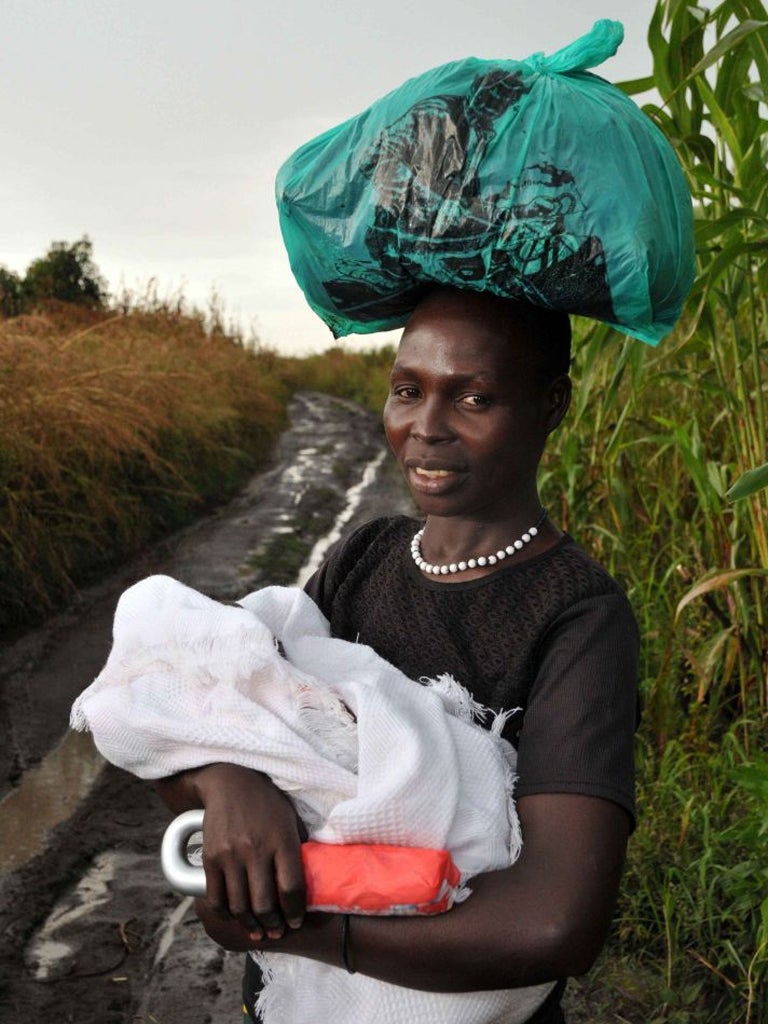New 'Lite' approach could save more lives with less money

Your support helps us to tell the story
From reproductive rights to climate change to Big Tech, The Independent is on the ground when the story is developing. Whether it's investigating the financials of Elon Musk's pro-Trump PAC or producing our latest documentary, 'The A Word', which shines a light on the American women fighting for reproductive rights, we know how important it is to parse out the facts from the messaging.
At such a critical moment in US history, we need reporters on the ground. Your donation allows us to keep sending journalists to speak to both sides of the story.
The Independent is trusted by Americans across the entire political spectrum. And unlike many other quality news outlets, we choose not to lock Americans out of our reporting and analysis with paywalls. We believe quality journalism should be available to everyone, paid for by those who can afford it.
Your support makes all the difference.A radical approach to delivering antiretroviral drugs to people with HIV to halt the transmission of the virus is being implemented in three countries in Africa, opening the way to treatment for least one million extra patients at no additional cost.
The move, being led by British scientists and funded by the UK Department for International Development, comes at a time when the global economic crisis is threatening progress against the pandemic.
The project, known as "Lab-Lite", is being run in Uganda, Malawi and Zimbabwe and involves monitoring the roll-out of antiretroviral drugs to rural areas, where two-thirds of the population live, without the array of laboratory testing conventionally regarded as necessary. The millions of pounds saved can be ploughed back into purchasing more drugs and treating more patients.
Professor Diana Gibb, of the UK Medical Research Council's clinical trials unit, said: "The Global Fund has cancelled its 11th funding round and less than half the adults who need treatment for HIV are receiving it. This project will help use existing funds to treat at least an extra million patients."
Routine laboratory testing every three or four months had been thought essential to monitor toxicity and side effects in people on antiretroviral drugs. But a study (the Dart trial) by the same researchers, published in 2009, showed routine lab testing made little difference to survival after five years – 90 per cent of those tested regularly were alive compared with 87 per cent of those who were not.
Professor Gibb said: "These are very safe drugs. You don't need regular monitoring for side effects or medically qualified people to deliver the pills. That is what the Dart trial showed and the Lab-Lite project is looking at how to translate those findings into a rural setting."
One of the main barriers to people receiving treatment is that they live too far from the nearest hospital for testing. They often have to trek long distances to get drugs, so many drop out.
"You can train healthcare workers to deliver pills to where people live. But local health centres are struggling to roll out treatment with the staff they have got when they have to run immunisation and mother-and-baby clinics as well," said Professor Gibb. The Dart trial findings had had a hostile reception from some experts, she said. "So we thought, let's go further and show it actually works in the field."
Today's progress report from the World Health Organisation, the Global HIV/Aids Response, says treatment to date has focused on the "most accessible segments of the population" who are better off, better educated and live closest to hospitals. "Greater efforts and novel strategies are required to extend service provision to harder-to-reach populations," it says. WHO guidelines say antiretroviral drug treatment should ideally be monitored with regular tests. But they say that where this is not possible, giving treatment should be the priority.
World Aids Day: Victory within reach – but cuts could spoil it all
New 'Lite' approach could save more lives with less money
Hillary Clinton: We must not waste this historic opportunity
Elton John on the streets with Ukraine's lost generation
Carla Bruni-Sarkozy: Mothers, babies and HIV
Jeffrey Sachs: Politicians just don't care enough to tackle this scourge
Jeremy Laurance: States need to back up fine words with hard cash if great leap forward is not to be wasted
Leading article: Belt-tightening can't apply to Aids
Aids under the lens
World Aids Day: Thirty-four million reasons to act
Join our commenting forum
Join thought-provoking conversations, follow other Independent readers and see their replies
Comments